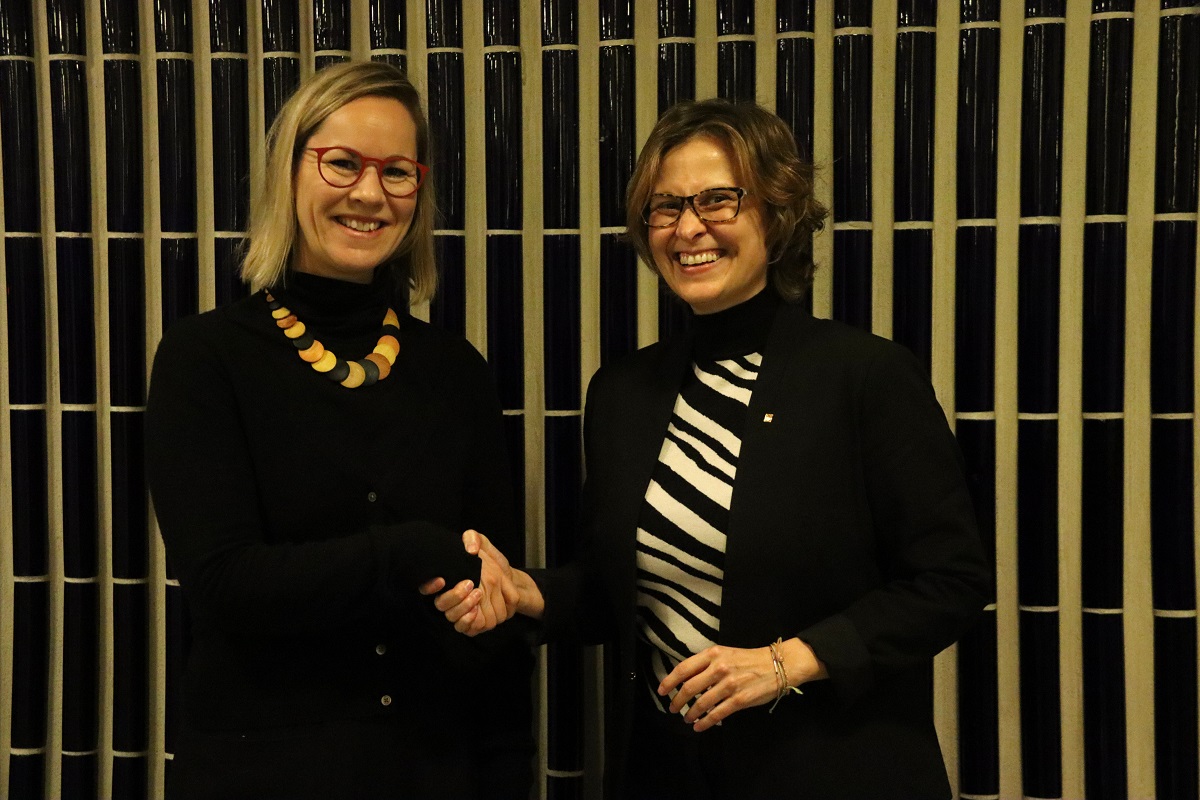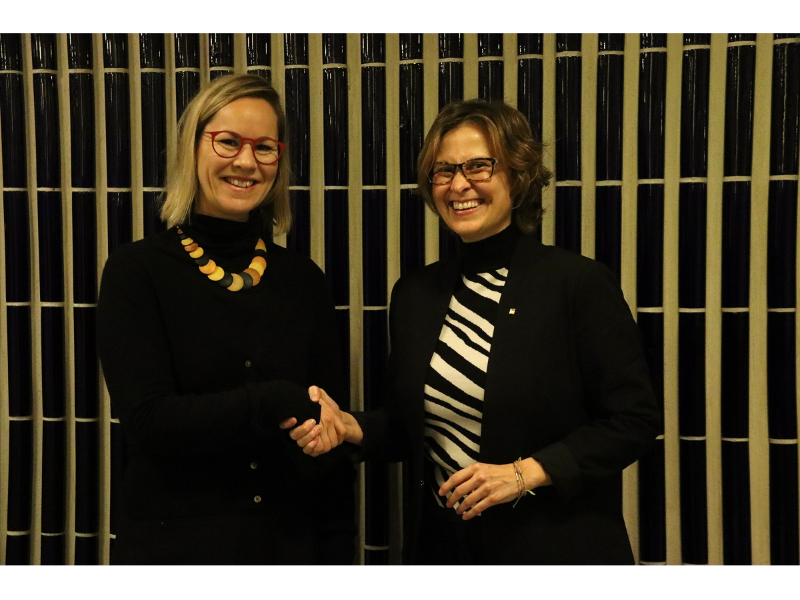- Catalonia presented the project at an event in Helsinki, exchanging experiences with the Finnish Government, which pioneered the roll-out of an innovative experiment in universal basic income between 2017 and 2019.
- At a conference in Helsinki, Sergi Raventós, head of the Office of the Pilot Plan to Implement the Universal Basic Income, highlighted the features that make the Catalan pilot plan “different from most of those that have been carried out so far”, such as its universality. The Catalan scheme will be Europe’s largest pilot plan for universal basic income.

The Minister for Foreign Action and European Union, Meritxell Serret i Aleu, met this Wednesday with the Finnish Minister of Social Affairs and Health, Hanna Sarkkinen, in Helsinki. This is the first meeting that Serret has held as part of her trip to Finland, where she plans to hold working meetings with various institutional representatives. Serret and Sarkkinen met bilaterally before the presentation of the Catalan pilot plan for universal basic income in the Finnish capital and shared best practices in this field. Finland was the first country to carry out a pioneering experiment in universal basic income between 2017 and 2019, with positive results in terms of the impact on the labour market, as well as on the well-being of its beneficiaries, all of which has inspired subsequent initiatives. The event was held at the headquarters of KELA, the Finnish social security agency, which was in fact the government agency in charge of rolling out the experiment in the country. Both ministers took part in the event.
In her closing speech, Minister Serret highlighted the Catalan Government’s commitment to the Catalan pilot plan, which has found a benchmark in Finland. “Finland led the way, now it is Catalonia’s turn”, said Serret, who described the Nordic country “as a model” and “a full democracy that we admire”. With the example of the experiences of basic income in both Finland and Catalonia, Serret pointed out that “both countries focus their policies on improving people’s lives”, with the aim of creating “more just and egalitarian societies”. She also pointed out that the Catalan pilot plan will be the largest European experiment in universal basic income and that its distinctive feature is its universality. For her part, Minister Sarkkinen told the Catalan minister that the Catalan pilot plan is necessary for the proper functioning of the welfare state and expressed her conviction that the experience “will provide us with lessons to be learned in terms of our work” in Finland.
For Serret, both countries also share the need to bring the European Union closer to its citizens, and she stated that Catalonia “wants to help Europe find solutions to global challenges”, such as the climate crisis and the energy crisis. In this respect, the Minister for Foreign Action and European Union highlighted the areas of shared interest between Catalonia and Finland, conveying“the Catalan Government’s desire to strengthen relations with Finland and other Nordic countries”. As a part of this task, Serret wanted to highlight the work of the Delegation of the Government of Catalonia to the Nordic Countries and to the Baltic States, headed by delegate Montserrat Riba.
The Catalan pilot plan for universal basic income
The pilot plan for a universal basic income in Catalonia is one of the most important projects of this term of office and aims to move Catalonia towards a more guaranteed and universal welfare state model. During the two years of the pilot plan, participants will receive a monthly payment of 800 euros per adult and 300 euros per child under the age of 18. In total, some 5,000 people will receive the universal basic income: 2,500 will be randomly selected from all households in Catalonia and the remaining 2,500 will correspond to the population of two specific municipalities.
At the event in Helsinki, the head of the Office of the Pilot Plan to Implement the Universal Basic Income, Sergi Raventós, explained in a conference the Catalan experience under the title “Europe’s biggest Universal Basic Income Pilot Project - the Catalan case”. Raventós stressed that the Catalan Government’s project “presents characteristics both in its design and in its key elements that make it especially innovative and different from the majority of the pilot plans that have been carried out up to now”. “For 24 months, 5,000 people will receive a monthly individual cash transfer of 800 euros per adult and 300 euros per child”, he said, adding that “it will be almost universal, since everyone will be able to receive it, except for the richest 10% of people or those who declare wealth tax”.
This design, Raventós pointed out, has been adopted because “it is possible to evaluate two fundamental aspects of universal basic income: its universality and its functioning at a basic level”, as other pilot schemes have merely focused on “a particular social group or set of persons meeting particular requirements”. The pilot plan will consist in the selection of a thousand randomly selected households throughout Catalonia, where everyone who resides there will receive the monetary allowance, and in approximately a thousand households in two municipalities, where the entire population (except for the 10% with the highest incomes) will receive the monetary allowance. Raventós expects to see results in living conditions, education, health, employment, financial situation, gender relations, well-being and autonomy, use of public and private services, community fabric, inequality and the values and attitudes of recipients.
The presentation of the Catalan pilot plan kicks off Minister Serret’s agenda for today and tomorrowin Helsinki, where she will hold working meetings with representatives from various Finnish institutions. The Catalan Government delegate to the Nordic Countries and to the Baltic States, Montserrat Riba, will be accompanying Minister Serret on her visit. The trip to Finland is Serret’s fifth outside Spain since taking office last October and is part of the strategy of consolidating the Catalan Government’s reputation abroad and establishing it as a trusted partner of the European Union.


